What seemed like a distant future not too long ago is soon to become a reality.
Connected cars, powered by newly implemented 5G technology, look set to revolutionise how we experience our daily drive. Connected cars have their own connection to the internet, which allows the car to communicate with other devices in the surrounding area.
A recent study by ABI Research, a technology-focused think tank, found that worldwide there will be 41 million 5G connected cars on roads by 2030, and 83 million by 2035.
They also said that 2022 will be the first year 5G connected cars will be put on sale to the public – so the future isn’t too far away.
Another study by Carnegie Mellon University and Pittsburgh found that smart traffic lights, powered by 5G, would lead to a 40% reduction in vehicle wait time, a 26% faster commute and a 21% decrease in vehicle emissions.
There are many ways that 5G connected cars look set to improve our automotive experience and road safety, reduce fuel consumption and self-diagnosing faults. To find out just how much your daily drive will benefit from the implementation of connected car technology, continue scrolling or explore our interactive 5G connected car daily drive.
You’ll be able to see around corners like a superhero
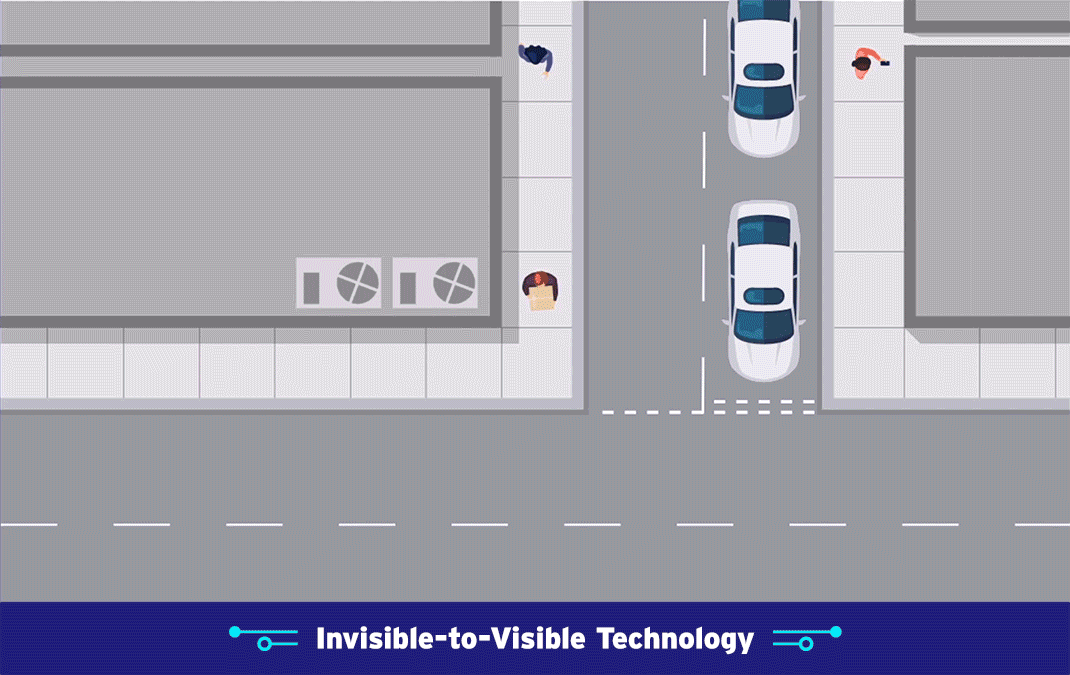
Perhaps the most striking innovation and improvement to the automotive experience that 5G connected cars will bring to motorists is “making the invisible visible” or rather, using a series of sensors from inside and outside the vehicle to collect data from the cloud and help drivers see around corners.
Nissan is currently testing I2V (Invisible-to-visible) technology which will allow motorists to see what’s further down the road, behind a building or around a corner, giving them a much greater ability to predict potential hazards that may arise that they are not in a position to visually recognise yet.
In Nissan’s own words, they say that “Invisible-to-Visible (I2V) uses a 3D, augmented reality interface that merges the real world and virtual world to make information visible which the driver would not otherwise see… This includes potential hazards hidden behind buildings, and obstacles ahead of a blind corner – all displayed seamlessly to the driver to support a confident driving experience.”
This all, of course, couldn’t be possible without the lightning-fast speeds that 5G offers.
You won’t have to drive around in circles looking for a parking space anymore
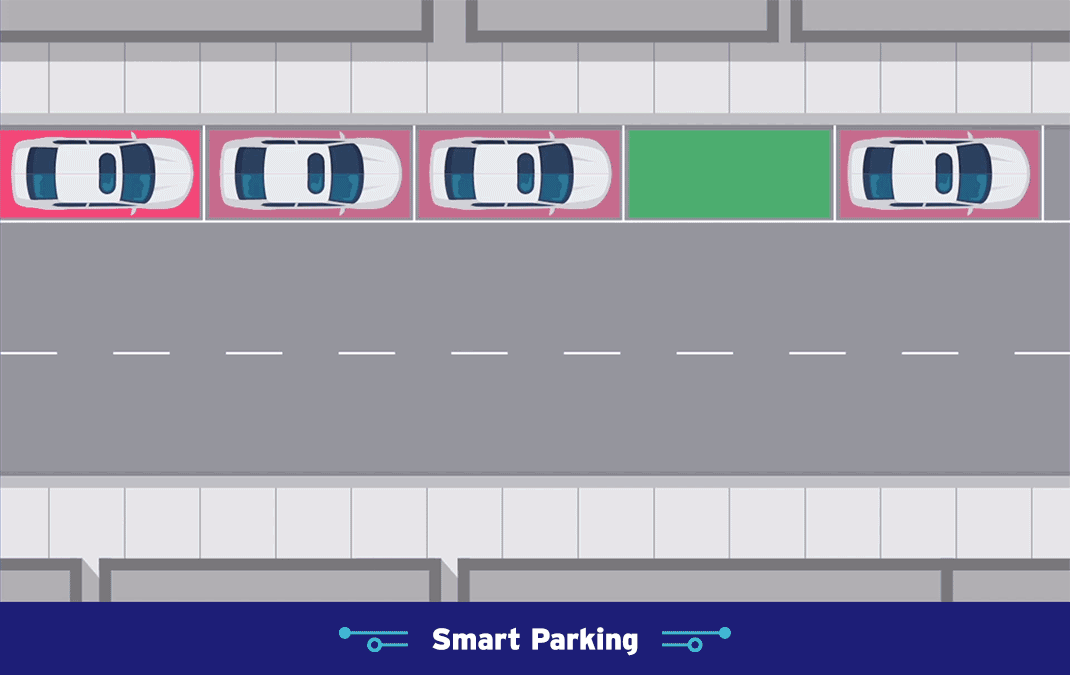
Perhaps one of the most unpopular parts of driving, attempting to find a parking space, should be a thing of the past with 5G connected cars.
In 2020, Vodafone launched an effort with Transport for West Midlands (TfWM) with the aim of traffic congestion and carbon emissions, and of course, making parking a whole lot easier. Using HD cameras fitted to their vehicles, they actively scan the streets looking for free spaces. That data is then transmitted to a 5G connected car to inform the driver where they can park. They estimate that around 30% of cars in city centres are driving around looking for somewhere to park, so it could make a huge difference.
Also, remote parking will enable some high-end connected cars to park the car for you. Using the car’s smartphone app or smart key, motorists will be able to vacate the car, tell the car where it should park, and the car will do the rest. The best situations to use this feature will be to navigate into tight parking spaces (with the help of the car’s sensors) and in congested areas where parking spots are at a premium.
Your car will warn you if any pedestrians are in danger, and also warn them
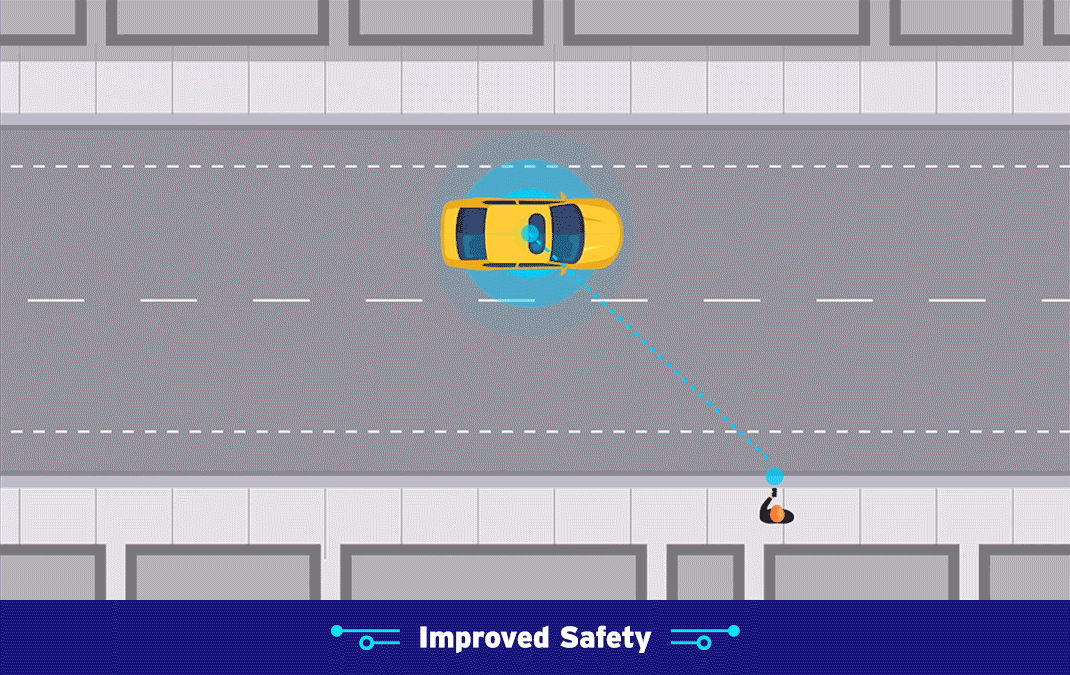
Every year, around 1.35 million people are killed on roadways around the world, and many of those are pedestrians. 5G connected cars will greatly increase the safety of those around you, while also making your journey safer for you and your passengers. C-V2X (vehicle-to-everything), powered by 5G will enable new technologies with life-saving potential to be deployed in real-time.
Cars connected with Samsung’s vehicle-to-pedestrian technology can monitor the location of up to 2,500 5G-enabled devices within a 1km range. The car speaks to these devices and predicts whether any of those with a device could be at risk from your car. The vehicle will then alter its route if necessary or warn the driver if obstructions are in the way.
According to Vishnu Sundaram from Harman Connected Car, “Beacon information containing location, direction of travel and speed is shared between the 5G-enabled devices and the vehicle. The cars have a target classification algorithm running on them so they can select those that are most at risk of causing a collision and alert if a safety issue arises.”
It is said the technology may be ready to hit the market as early as this year.
You will join the herd, and it will make you much quicker
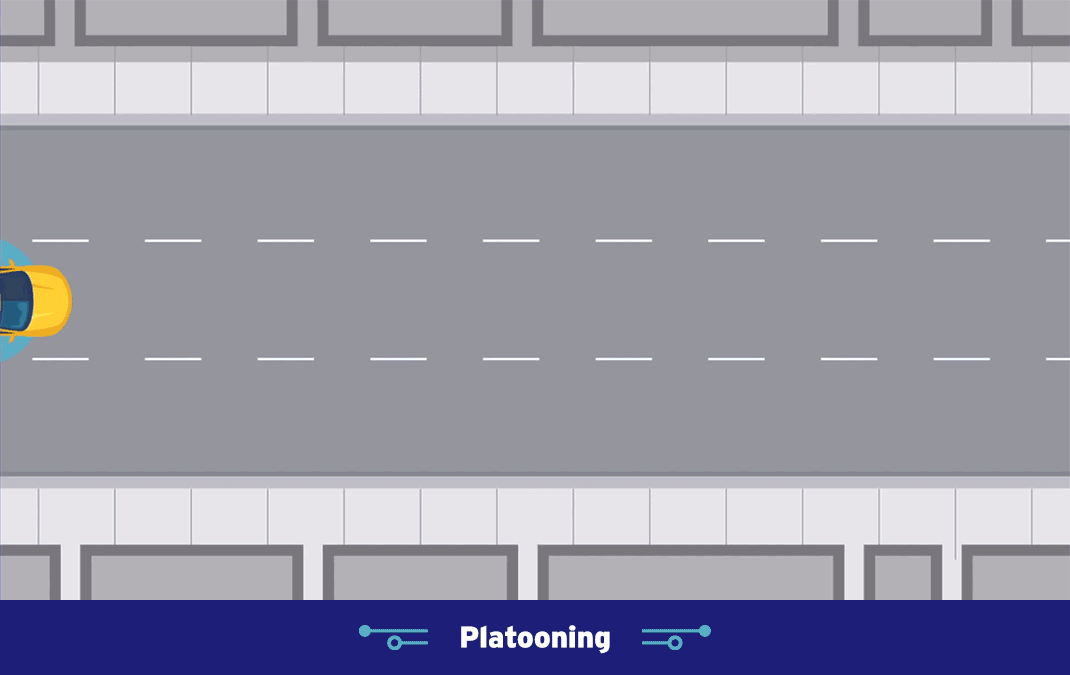
5G connected cars will also reduce the amount of time it takes to get to your destination by platooning, essentially creating groups of cars that move together seamlessly. Platooning refers to the formation of a convoy in which vehicles get much closer together, using the capabilities of 5G, than can be safely achieved by human drivers.
These automated convoys could make more efficient use of space on the road and save on fuel, while also drastically lowering the time it takes you to get to and from the office. All the vehicles in the platoon, or convoy, will speed up or slow down simultaneously, ensuring that safety is maintained.
Platoons will typically be formed on motorways where there is more space for the vehicles to manoeuvre and will only be broken up again once it’s time for a car to leave the motorway to travel to its destination. However, other cars will then join the platoon as they enter the motorway. Due to the decrease in the stop-start nature of motorways, and car travel in general, travel times will be greatly reduced, along with road safety.
Say goodbye to traffic jams, and traffic lights for that matter
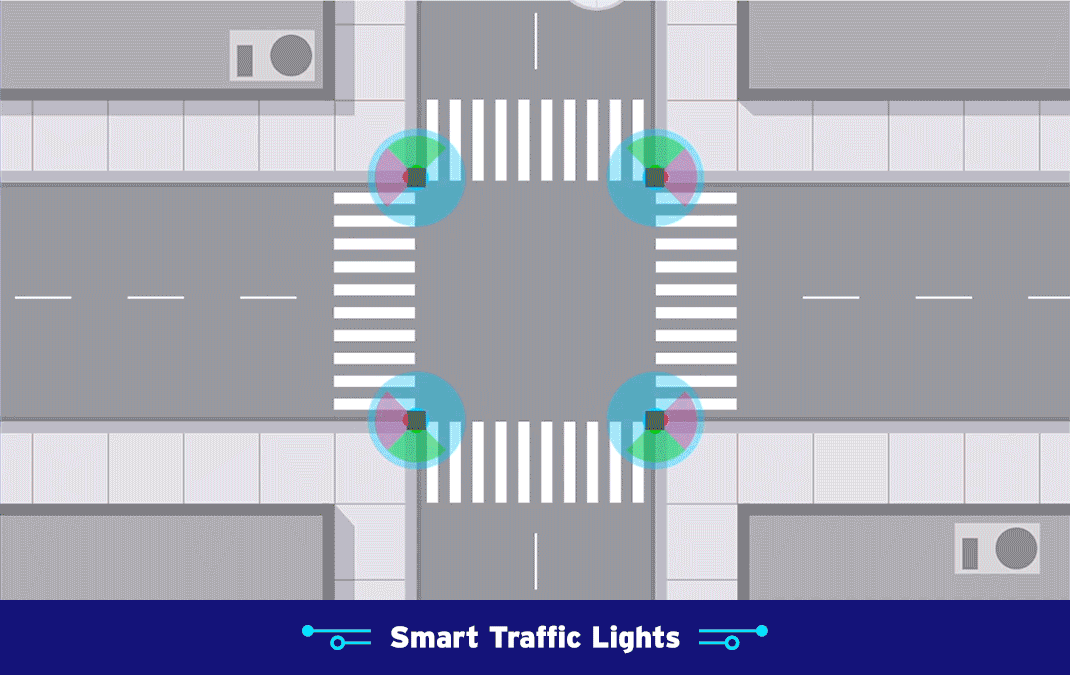
5G connected cars will have similar sensors to that of the surrounding architecture of the roads such as traffic lights, and that will enable them to speak to the car and vice versa to enable a more efficient journey. If you’ve ever been stuck at a junction trying to get to work or late for an important meeting, traffic lights may well be your worst enemy – especially those that don’t seem like they ever change.
Smart traffic lights will solve this problem. Guy Matthews, director of emerging technology at CGI UK, says: “Transport bodies will be able to manage a road network in real-time, controlling traffic lights, traffic flow and congestion through automated machine learning and artificial intelligence programmes. There will be significant improvements in transit-route planning and road safety, through the increased capture and transmission of real-time information.”
This will mean rather than traffic lights having a set time between when they turn from red and green, they will be adaptive and change colour depending on how busy the road is in either direction.
You’ll save around one-third on petrol costs due to less consumption
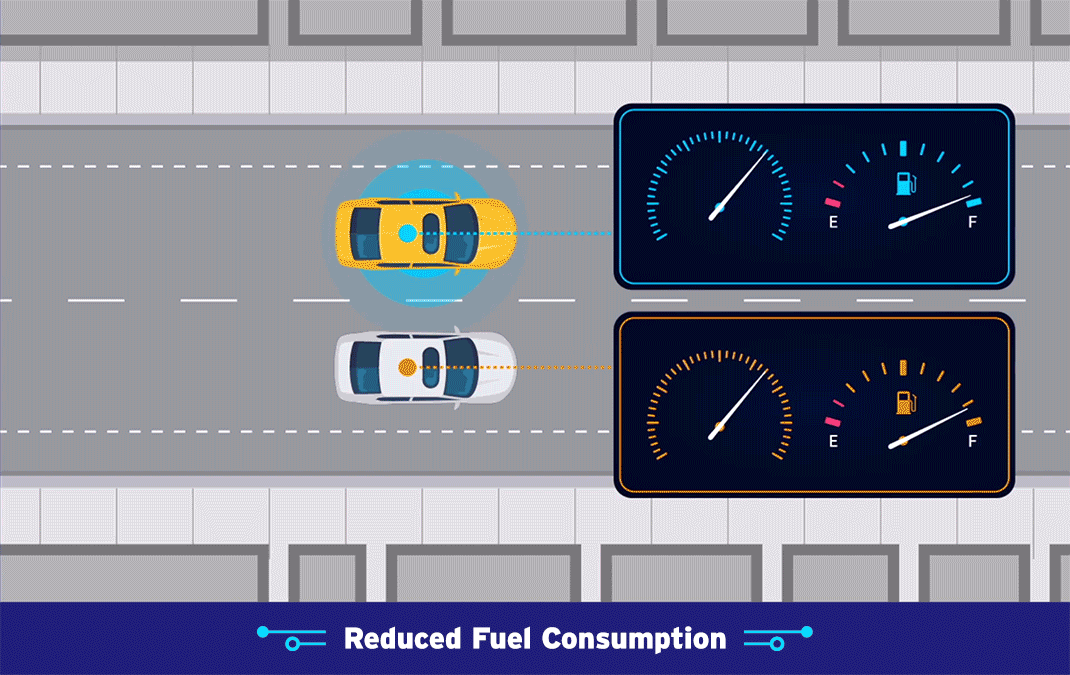
Using a 5G connected car will greatly reduce your fuel consumption and will, in turn, have a beneficial impact on your wallet at the end of the month. ABI Research predicts that 5G connected vehicles will have a lower fuel consumption by up to one-third due to more efficient driving – that amounts to a saving of £22.54 per month on average for a UK family, or £270.52 per year.
Add to this that by the time that 5G connected cars become widely adopted, only electric cars will be allowed to be sold in the UK, with the government recently moving to end sales of all non-electric cars by 2035. This will again decrease the emissions caused by cars. The wider benefit of this is a reduction of emissions caused by car fumes will help the UK and other countries reached their net-zero emissions by 2050 aspirations.
It’s also been claimed that 5G connected cars will also save motorists money on car insurance. It is likely to cost much less due to 94% of all accidents being caused by human error.
Your car will tell you if it’s about to breakdown or needs a part replaced
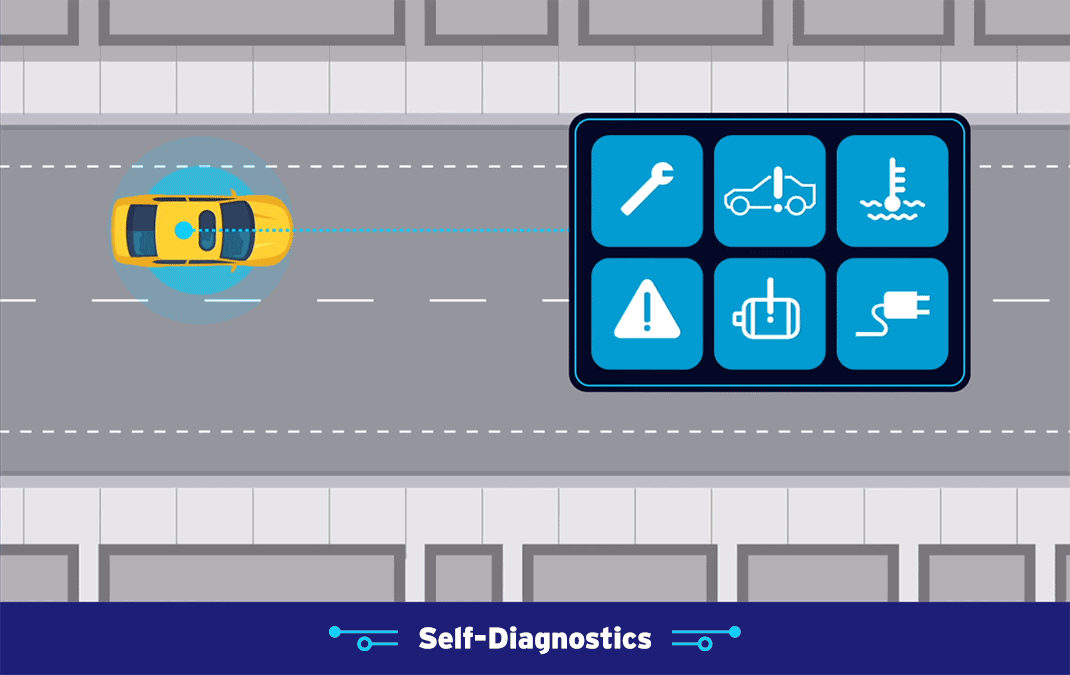
Another time consuming and potentially pricey part of owning a car is maintenance and repairs. However, 5G connected cars will make it a lot easier to properly maintain your car because of self-diagnostic capabilities. Samsung-owned company Harman has identified that 5G will enable car manufacturers to teach your car how to diagnose potential problems and warn the user of the issues.
Speaking to Autoblog, Roger Jollis, Harman’s director of product management said: “5G can improve vehicle analytics. The car will be able to listen to waveforms or vibrations that can be analysed on-board and uploaded to cloud-based systems". He also went on to say that connected technology will be able to warn a motorist or fleet operator when a part of the car is about to fail, which would save both time and money if the problem was corrected before it got worse.
Other reports claim that 5G connected cars will then be able to take that data and book your car in with a mechanic automatically.
Set geographical boundaries for your car to prevent theft
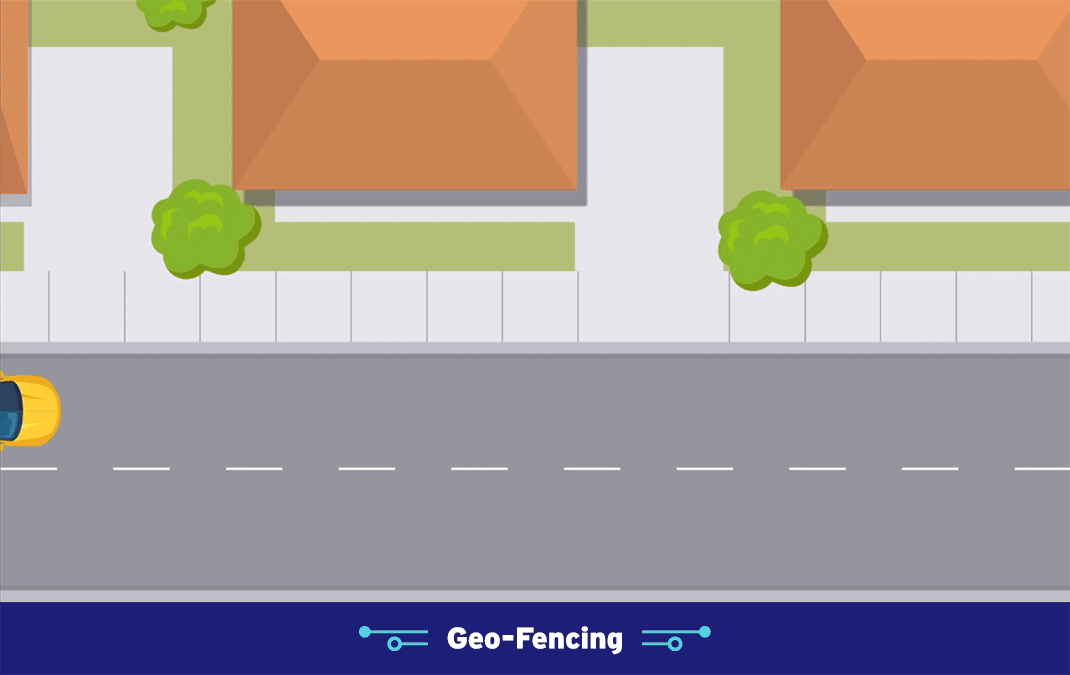
According to Traffic Technology Today, “Geofencing refers to a geographic zone where the entry, speed and fuel use of connected vehicles can be controlled digitally.” In terms of car security, this means that a car owner will be able to program a car to not operate within a certain area or distance from their house. However, if the geofence is broken and the car is used outside this area, the owners will be alerted via the car’s phone app and they will be able to take action depending on the situation.
Not only is geo-fencing good for the security of the car when you’re not using it or asleep, it will also come in handy if you potentially share your car with a young adult who is just learning to drive on their own. To ensure that they don’t accidentally find themselves in an area that they shouldn’t, geofencing will allow you to be notified and act depending on their location.
For more automotive content, be sure to bookmark the Select Car Leasing blog. Our recently released research on NASA technology in our cars shows how, like 5G, technology can greatly increase our automotive experience.
Enjoyed this? Read our latest news:
- Best Car Lease Deals | February 2021
- Muscular new Mercedes-Benz C-Class enjoys electric makeover
- Vauxhall Insignia gains sporty new ‘GSi’ trim level
- Added petrol power for the Volkswagen Tiguan
-
Best Convertibles to lease in 2021
For all the latest reviews, advice and new car deals, sign up to our newsletter here.

















